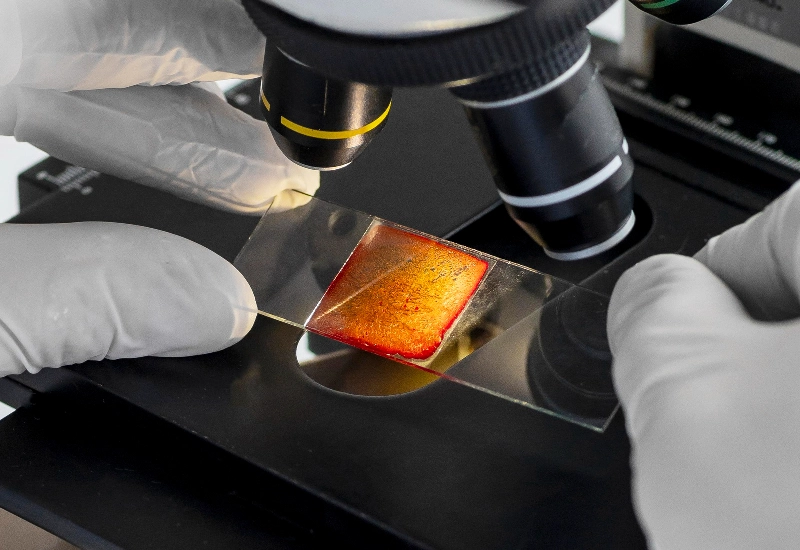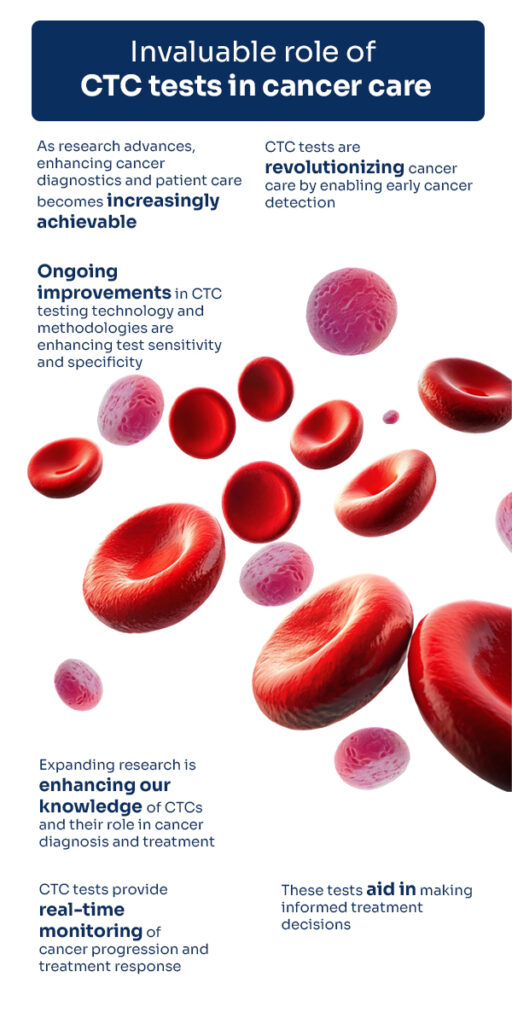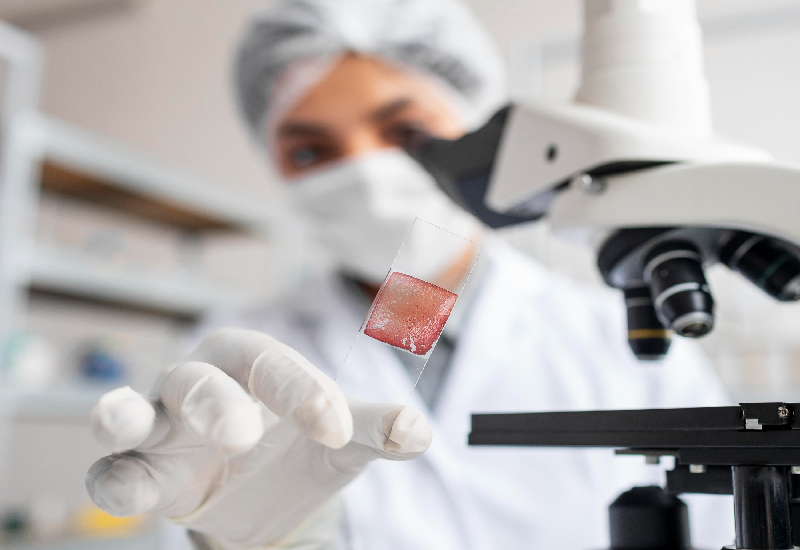Circulating tumor cells (CTCs) travel through your bloodstream like rogue soldiers, trying to establish their territory in distant organs. These elusive CTCs might sound like science fiction, but they’re a real sign of hidden cancer. Research suggests that detecting these CTCs could be the key to defeating cancer at its earliest and most vulnerable stage. In the ongoing battle against cancer, early detection is crucial for successful treatment and improved outcomes. CTC tests are a groundbreaking approach that holds immense promise for diagnosing and monitoring cancer.
What are circulating tumor cells?
Cancer often remains hidden until it’s quite advanced, making treatment more difficult. This is where circulating tumor cells (CTCs) come in. Imagine these CTCs as cancer’s traveling spies. They break away from the main tumor and hitch a ride in the bloodstream, circulating throughout the body. Scientists have developed a revolutionary technology to analyze these CTCs, turning them into a powerful tool against cancer.
The significance of CTCs in cancer detection
Early warning system:
Think of CTCs as an early alarm system for cancer. They can shed from the main tumor well before it shows up on scans or causes symptoms. This precious window of opportunity allows for earlier intervention and treatment.
Insights into cancer’s genetic profile:
Circulating tumor cells (CTCs) carry genetic information specific to the tumors they originate from. By analyzing these cells, healthcare providers can uncover the genetic mutations and expression profiles driving cancer growth. This knowledge allows for the creation of personalized treatment strategies, leading to more targeted and effective therapies.
Continuous monitoring:
Cancer is dynamic, constantly evolving and adapting. Studying CTCs provides a real-time understanding of the cancer’s behavior, enabling healthcare providers to track treatment effectiveness. A decrease in CTC counts can indicate a positive response to therapy, while an increase may suggest the need to modify the treatment plan.
Limitations of traditional cancer diagnostics
Traditional cancer diagnostic methods often fall short in detecting early-stage cancer, usually identifying it only when it has progressed significantly. Many cancers are asymptomatic in their initial stages, making early detection challenging. For instance, mammograms, X-rays, and biopsies are effective but may only catch cancer at more advanced stages.
Furthermore, many diagnostic techniques are invasive and can be uncomfortable. For example, biopsies require tissue or fluid extraction for analysis, which can be painful and may have complications. Imaging methods like MRI or CT scans are excellent for locating tumors but may not provide detailed genetic or behavioral information, limiting the ability to tailor treatments precisely.
The importance of CTC tests
Circulating Tumor Cell (CTC) tests are blood tests designed to detect tumor cells that have detached from the primary tumor and are circulating in the bloodstream. These tests represent a significant advancement in cancer diagnostics, offering new hope for more effective detection and treatment.
 Impact of CTC Tests on cancer diagnosis
Impact of CTC Tests on cancer diagnosis
Early detection:
CTC tests can identify cancer at its earliest stages, often before symptoms appear. By capturing CTCs in the bloodstream, these tests provide a unique chance for early intervention and improved patient outcomes.
Monitoring treatment efficacy:
CTC tests enable healthcare providers to monitor the effectiveness of cancer treatments in real time. This allows for the personalization and optimization of therapy based on how the cancer responds.
Minimally invasive procedure:
Since CTC tests require only a simple blood draw, they avoid the discomfort and risks associated with more invasive procedures. This makes regular monitoring more accessible and less intimidating for patients.
Personalized medicine:
Each cancer has a unique genetic profile. CTC tests can analyze genetic information from the primary tumor, providing valuable insights that help tailor personalized treatment plans.
Early detection of metastasis:
CTCs can migrate to different organs and form secondary tumors, leading to cancer metastasis. By detecting these cells early, CTC tests can provide critical information about potential metastasis, allowing for timely intervention.
The Future of CTC Testing
Ongoing advancements in CTC testing technology and methodologies, such as those used in our research labs worldwide, are enhancing the sensitivity and specificity of these tests. Continuous clinical trials and research are expanding our understanding of CTCs and their role in cancer diagnosis and treatment.
CTC tests are revolutionizing cancer care by enabling early detection, guiding treatment decisions, and providing real-time monitoring. As research advances, we anticipate even more breakthroughs in this field, further improving cancer diagnostics and patient care.



 Impact of CTC Tests on cancer diagnosis
Impact of CTC Tests on cancer diagnosis 




